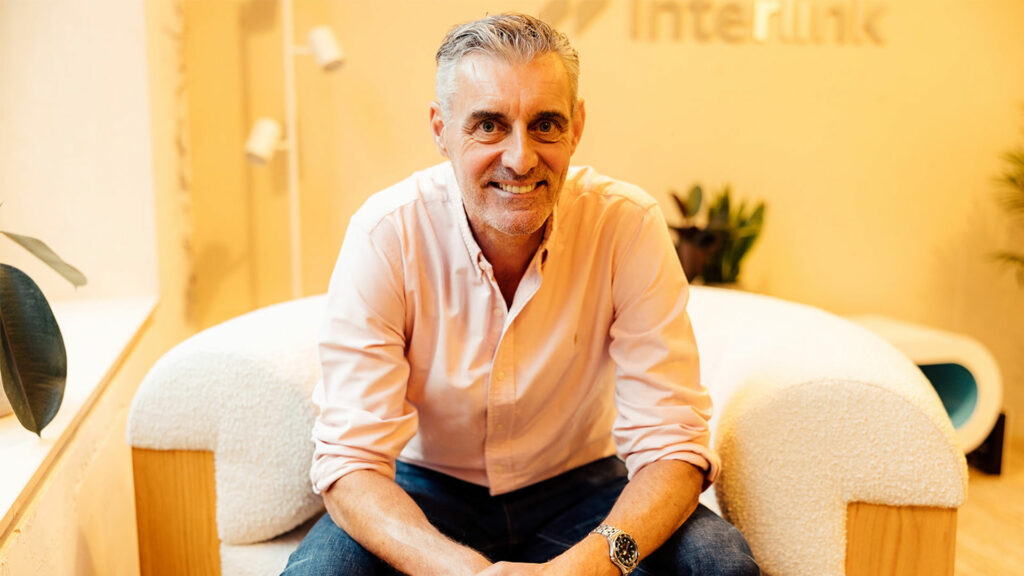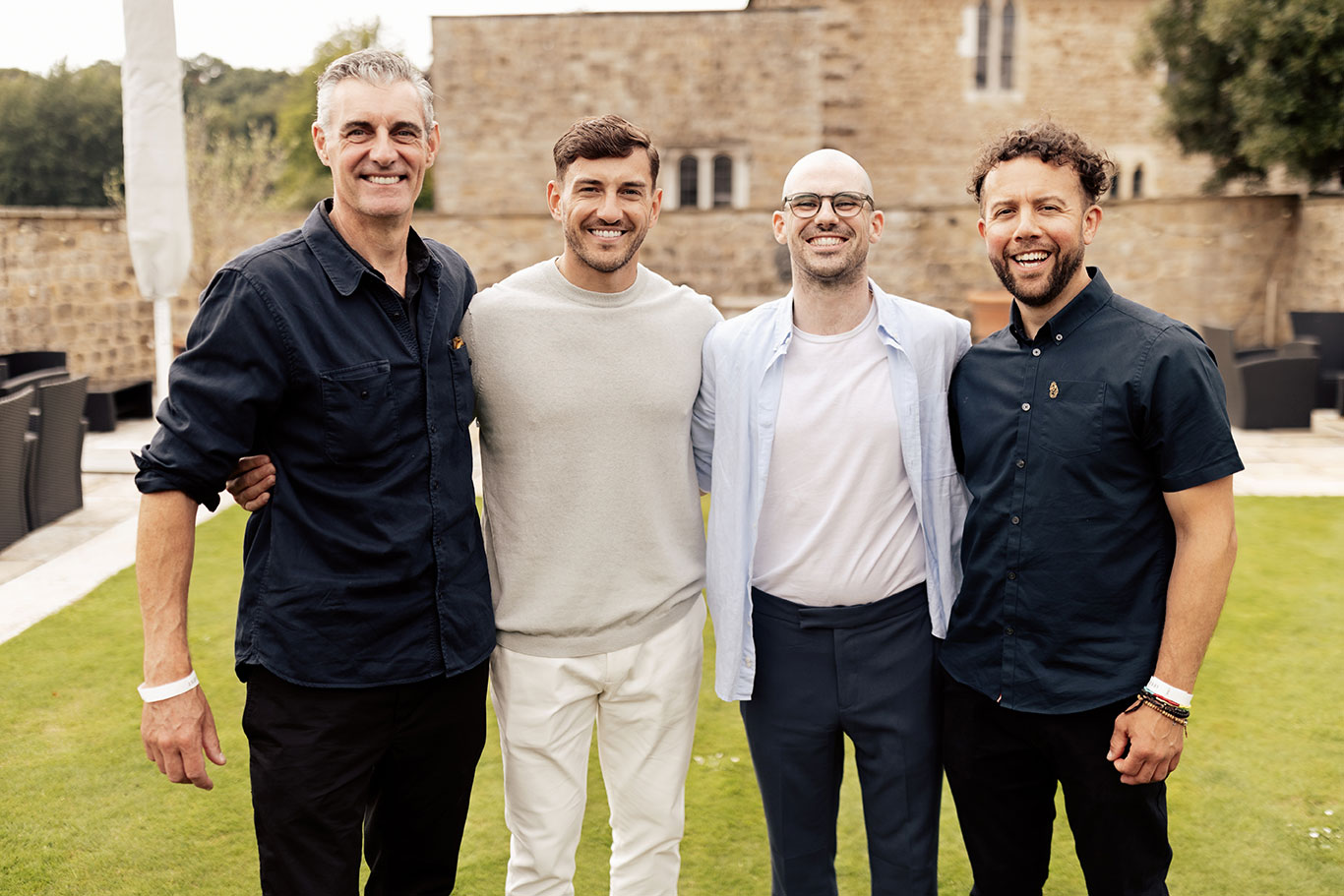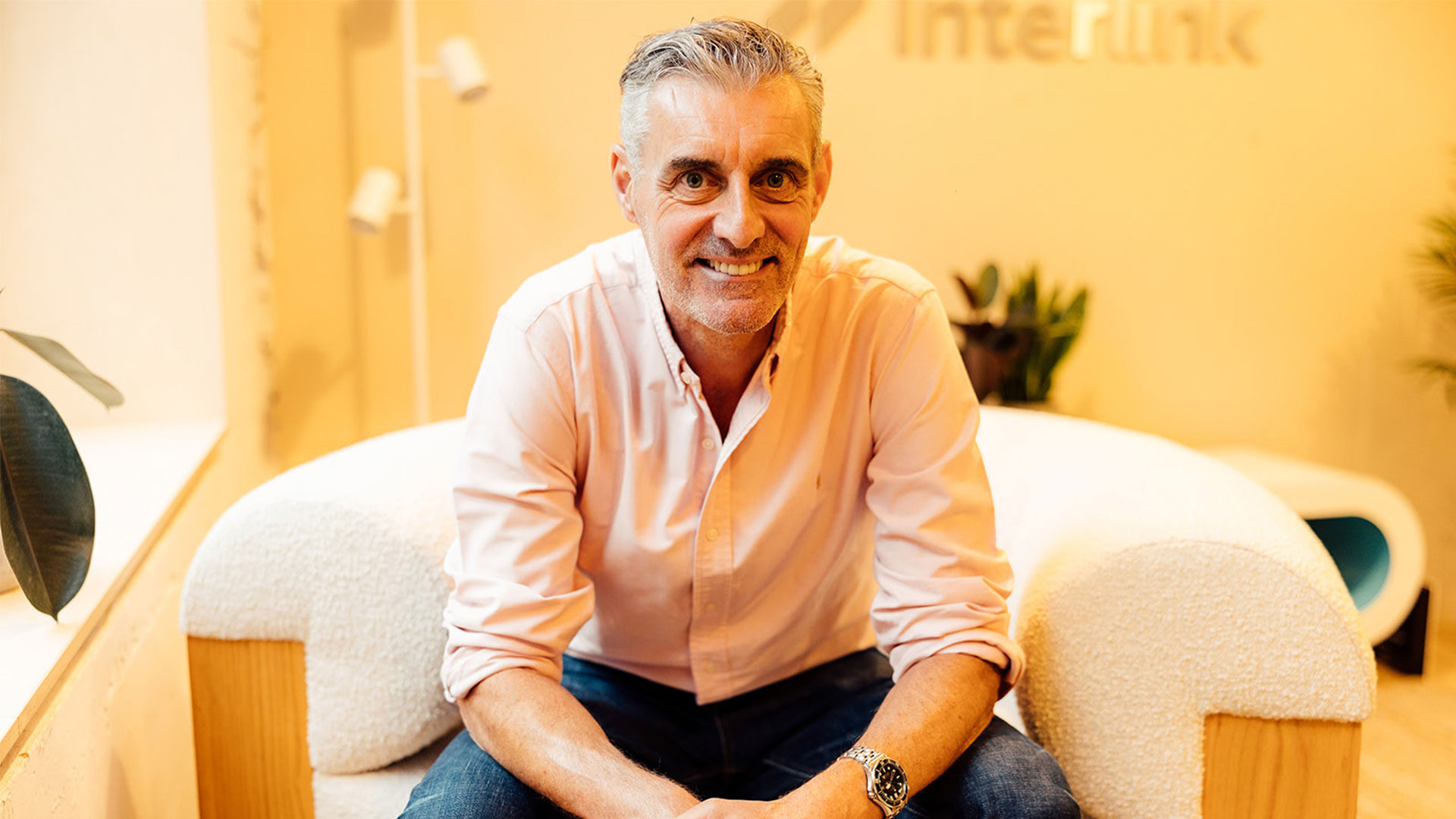From textiles to technology and the lessons learned along the way
Jim Prior, Interlink’s new non-executive director, talks to us about his career and why he’s so excited to join the Interlink team.

Let’s start at the beginning: what attracted you to join Interlink?
I think Interlink is exactly the kind of company the world needs right now. It’s energetic, entrepreneurial and authentic, a place that’s committed to its goals, its people and its clients in a way that many other businesses talk about but don’t deliver. That’s not only very attractive but hugely exciting. The culture that trickles down from the founders is wonderful; a lot of big companies would die for similar. And the NED role offered me the chance to be part of it, to be involved in something that I believe will genuinely change the industry for the better.
With all your experiences and connections in the business and marketing world, what are the major trends you see impacting the landscape Interlink operates in?
So, I think there are a couple of interesting trends. One is the discussion about the nature of marketing, particularly the debate between performance-driven marketing and brand-led marketing. Traditionally there’s been this schism between the two and the view has always been you’re either one or the other. But the reality is that brands are built through the union of both. What’s really interesting for Interlink is it can bridge between both of them.
The other trend is the continual consolidation of companies into larger organisations that are driven by operational efficiency rather than understanding clients and serving them in an agile, responsive and human way. The consequence has been a squeeze on those mid-sized companies that have the resources to be able to serve big clients well but are not so large that they can’t pivot and turn and adjust and adapt. Clients are left with a choice between a very large organisation that’s not geared up to respond in the way that you might like or a small independent that doesn’t have the capability or resources needed. And again, Interlink is exciting because here we have a mid-sized company with the resources needed to be able to serve clients at scale, worldwide, but still adaptable, agile, responsive, and driven by the needs of clients.
How do you see the landscape evolving within the next few years?
The other thing that’s been going on for years now is the whole debate about when and how we are going to see technology tangibly impact the way business gets done. Almost every year there’s been a buzz about something new that’s going to transform our lives. But the reality is there are very few examples of any technology innovations that have been implemented anywhere in the marketing services world that have made a substantive difference to the efficiency or effectiveness of how business gets done. We have to be at the point in the next few years where we see some real value coming out of all the investment in technology. Who and how are we going to start to translate the promise of new technologies into a reality that benefits companies and their clients?
What have been the most significant changes you’ve seen during your time in business?
Maybe the biggest change is the quality of the working experience. I think the world of work is a much better place now than it has been at any point in my career, in so much as I think the rights and the needs and the care of individuals are much better respected than they ever were.
Something I have learned about change in business is that it’s inevitable. Some of it will be predictable and some of it will be unpredictable, but it will happen. And if you are a business that is about driving and making and implementing change, then you have a much better chance of being able to ride the wave, even if that change is different to what you expected.

The Interlink Board
While we've achieved a lot at Interlink, we know we don’t have all the answers. That’s why we brought Jim on board. He’s the perfect fit—sharing our vision, values and culture. His experience and insights have already strengthened us as a business and team in the short time we've worked together. We're all super excited about the partnership we’re building, both in business and beyond.
Jay GorgaCo-founder and Chief Growth Officer
Is there a particular value or motivation that’s been central to your career?
I’m at my happiest where I feel inspired by the company and people around me and there’s an energy that is shared by everybody. I’ve been fortunate enough to work in many companies at pivotal times in their histories, but to have the thrill and excitement of pursuing a goal with equally committed people, that’s really important to me. I’m not interested in the everyday. I’m interested in ambition, companies with ambition, people with ambition. And in many ways, the loftier the better.
I’m also motivated by finding better ways to do things. How can we make the lives of our clients, the lives of our people and, to the extent that we can implement it, society better? Does it have meaning and relevance beyond just the company trying to make money, and does that feel real? I love to be engaged in creative environments where there are ideas and possibilities and new thoughts going around.
Drawing on your experience, what do you think are the most important things a business should focus on to be successful?
Business is hard, so the answer is hard. If there was a ‘cheat sheet,’ it would be on the internet already, and everyone would be doing it. That’s the first thing I suppose: you’ve got to be better than the knowledge that’s already out there, than the average. You’ve got to go beyond anything that you can find on the internet or at a TED Talk. You’ve got to be different and innovative and creative and imaginative and entrepreneurial, or you’re average. And to do that, you’ve got to have great people, particularly in our area of business, because our toolkit is people. Yes, we have technologies that do and will increasingly form part of a suite of products, but still, they’ll be driven by people. And in order to get great people you’ve got to have an amazing culture, great leadership, integrity, honesty, transparency, brilliant communication and humanity at the heart of everything. Because if you can’t do that, then you’ll never be able to create the kind of environment in which people will do the best work.
On top of that, businesses need to have vision and strategy, they have to have tactics, and the ability to adjust and adapt. It’s not enough to have a rough idea of where you want to get to or a plan you never deviate from. Business gets disrupted and we have to be highly adaptable and ready for anything.
Jim brings a wealth of knowledge from inside and outside our industry. Our intent is to positively disrupt the B2B lead generation landscape so whoever we look to for advice and guidance needs to embody this. Jim's entrepreneurial spirit and fearlessness speaks directly to our position as a market disruptor.
Andrew McLernonCo-Founder and CEO
Is there any advice that you’ve been given by a leader or mentor that has really stuck with you?
The things that have stuck with me most over the years, are always be yourself, trust your instinct and trust yourself.
No one can predict the future so we all make decisions based on the evidence at the time. Sometimes, it’s better not to make the decision because you don’t have enough information, but more commonly, it’s much worse to make no decision than the wrong decision. So be yourself. Make the decisions you need to make, trust yourself to do that. Trust yourself to ask questions and show respect for other people when they do the same thing.
Another thing I would say is to hold high standards. And if you aim high and underachieve against that, celebrate what you have achieved and keep going. Be self-critical: do you think the work you’ve done is good, does it serve the purpose? But move forward. I did have a boss who said, “Progress, not perfection.” You can aim for perfection but make sure you’ve got progress. Sometimes it might not be perfect, but it is good enough.
And be kind, kindness goes a long way in this role.
What about an event in business – perhaps the change we talked about earlier – that you’ve learnt from?
This was on a tennis court rather than in a business situation, but a tennis coach told me to focus on the positive – on the one shot I executed perfectly rather than the ones I missed – and that stayed with me. In business there’s things you can control and there’s a hell of a lot you can’t, but what you can choose to do is to keep your focus positive.




